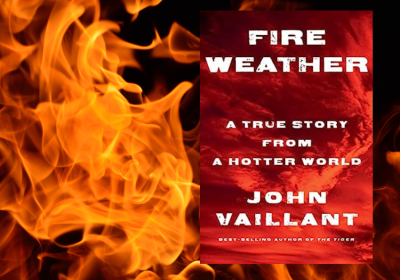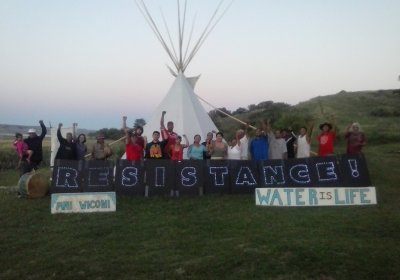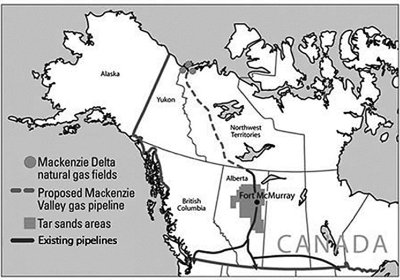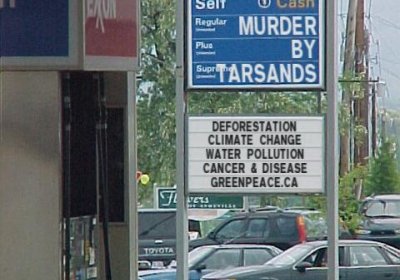John Vaillant — who may be the contemporary Hunter S Thompson of environmental journalists — has seen our Earth’s future up close and personal, and it is a fearsome, firey “beast”, writes Bill Nevins.
tar sands
Ten climate activists were arrested on October 11 for trying to shut down all tar sands oil coming into the United States from Canada by manually turning off pipelines in Minnesota, Montana, North Dakota and Washington state Democracy Now! said.
Growing in number and spirit, the Standing Rock Sioux protest against the Dakota Access Pipeline is swiftly gaining strength, as a federal hearing delayed a decision on the controversial project on August 24.
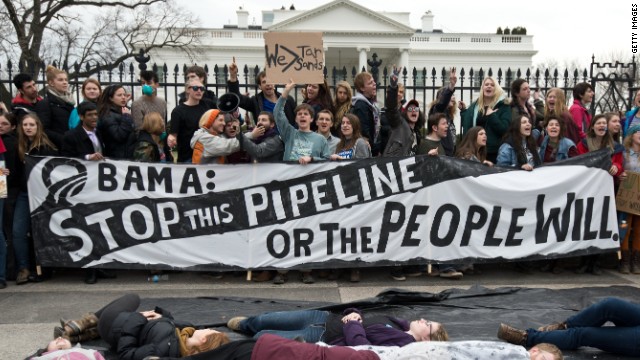 After seven years of intense public campaigning on the Keystone XL, a pipeline that would have bisected the United States carrying the world's dirtiest oil, US President Barack Obama denied Canadian oil company TransCanada a presidential permit for construction on November 6.
The president cited the pipeline's projected contribution to climate change in deeming it not in the national interest.
After seven years of intense public campaigning on the Keystone XL, a pipeline that would have bisected the United States carrying the world's dirtiest oil, US President Barack Obama denied Canadian oil company TransCanada a presidential permit for construction on November 6.
The president cited the pipeline's projected contribution to climate change in deeming it not in the national interest.
In a big win for environmentalists and the planet, the administration of United States President Barack Obama announced on January 20 that it would deny a permit to build the Keystone XL pipeline to transport oil from the Alberta tar sands in Canada.
Anti-tar sands activists in the US and Canada have been seeking to stop the pipeline, planned to transport oil from the Athabasca tar sands in north-east Alberta to refineries in the United States. Mining the Athabasca tar sands is one of the most environmentally destructive practices on the planet.
Canwest News Service reported on July 6 that the Canadian parliament’s Standing Committee on Environment and Sustainable Development had, at a secret June 17 meeting, abruptly cancelled a big report on the Alberta tar sands oil mining project and its impacts on water. The parliamentarians even destroyed draft copies of their final report.
After listening to testimony from scientists, bureaucrats, lobbyists, aboriginal chiefs and environmental groups, the committee dropped the whole affair like a bucket of tar. The Alberta provincial government refused to testify.
The Canadian province of Alberta is well known as a climate-destroying behemoth. The tar sands developments in its north are the single largest source of greenhouse gas emissions on the planet.
Less well known are the ambitions of its neighbouring province, British Columbia. It shares similar fossil fuel reserves and ambitions as Alberta. Vast coal and natural gas reserves are being opened at breakneck speed.
Construction is underway or planned for accompanying road, rail, pipeline and supertanker transport routes.
The tar sands mining project in Alberta, Canada, is possibly the largest industrial project in human history and critics claim it could also be the most destructive.
The mining procedure for extracting oil from a region referred to as the "tar sands," located north of Edmonton, releases at least three times the CO2 emissions of regular oil production procedures and will likely become North America's single largest industrial contributor to climate change.
